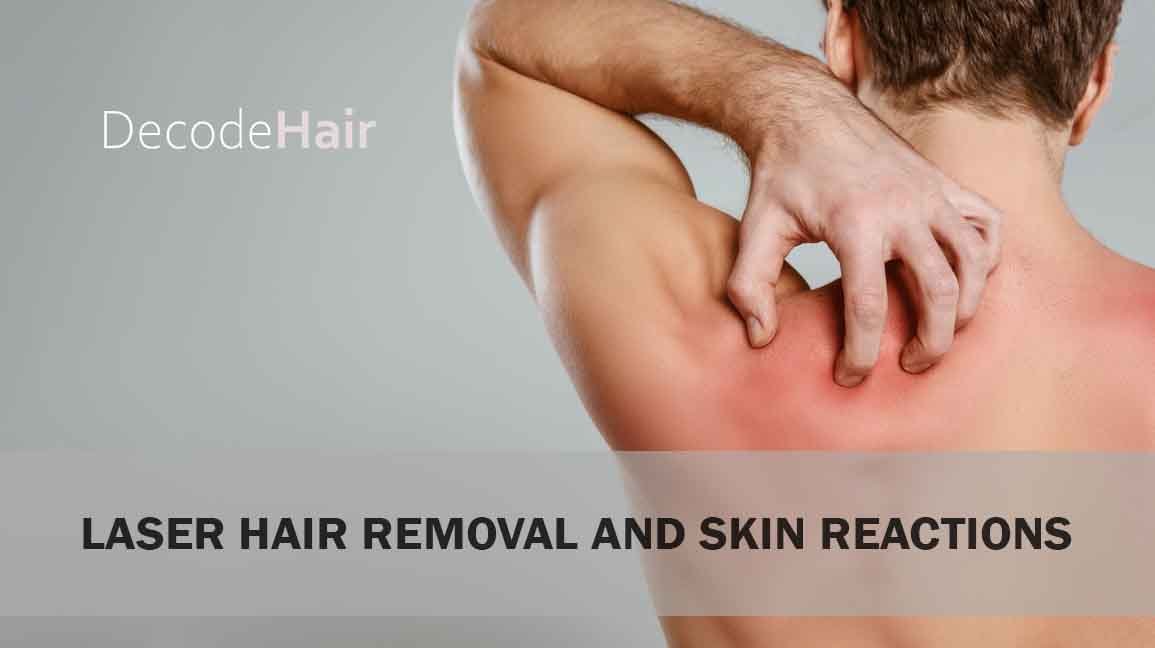Ever wondered, “Can laser hair removal cause skin reactions?” Laser hair removal is good for removing unwanted hairs But, It causes some people to risk skin reactions.
In this post we will be discussing laser hair removal and if it can cause skin reactions.
In this article, we list common side effects and share how to minimize them as well as expert advice for a safe laser hair removal experience.
Understanding Laser Hair Removal
This technique sends a laser beam in small focus to the hair follicles. The light is absorbed by the pigment in the follicles and destroys them, preventing any hair growth down here on. Commonly, it is used on the legs, underarms, face and bikini area.
Types of Lasers
A variety of Lasers are used on laser hair removal, depending upon their wavelength and then approaching the skin. Lasers fall into 3 main categories:
Diode Lasers: Diode lasers are one of the more common types when it comes to hair removal. A concentrated beam of light is emitted by these devices and the pigment in the hair follicles absorbs this light. Diode lasers cover a large area in one go and can be effective on all skin tones.
Alexandrite Lasers: It is the fastest laser which mostly works for fine hair types. Alexandrite laser emits longer wavelength light and is used in treating larger areas of skin such as legs, back etc.
Nd Lasers:
All types of lasers, even on dark skin, produce a longer wavelength of light which goes more deeply into the skin and aims at the hair follicles, but does not damage surrounding tissue.
Ruby Lasers: Less popular today, ruby lasers were among the first types that came out for hair removal. These admit a shorter wavelength of light so are especially good for hair that is finer or lighter.
The type of laser chosen will depend on your skin color, hair color and area to be treated. These factors will be reviewed by the practitioner to select a laser based on suitability and safety for hair removal, in order to achieve maximum effectiveness.
Can Laser Hair Removal Cause Skin Reactions?
Skin reactions (usually a temporary side effect of laser hair removal) These reactions can include:
Redness and Irritation: On occasion, just after treatment, the skin may be red or a little irritated on the treated area. This should go away within a few hours to days.
Signs of swelling: Few persons may have mild swelling around hair follicles. So kind of a natural response that almost always resolves itself within the same days or after treatment.
Sensitivity: For a brief period after the laser treatment, it is normal for your skin to feel sensitive when touched. Typically this sensitivity goes away within a few hours.
Uncommon Reactions: In some cases, you can get serious reactions like weeping or crusting (blisters), and scarring. These are rare and much more common in those with a darker skin type or who have tanned within 1-2 months of treatment.
Before undergoing laser hair removal, be sure to discuss your concerns over possible reactions with a practitioner. They can help you prepare for treatment and reduce side effects.
Factors Influencing Skin Reactions
Your skin’s reaction to laser hair removal can be impacted by a lot of things, from your diet and hormones to if you are on medication.
Skin type and color: Light skin allows the laser to go deeper with fewer side effects. The skin with more melanin is absorbed by itself, so that the pigmentation risk becomes higher.
Hair Type and Color: Dark, coarse hair responds best to lasers. Light or fine hair is harder to treat.
Type and Setting of The Laser Applied: Results can vary with different lasers, as well as laser settings. Lasers that have longer wavelengths are safer in dark skin.
Areas: The soft tissues of the face and bikini line may be more prone to a reaction than those on your legs or potentially arms.
Sun Exposure: Avoid sunbathing /sunburn 48 hours post & pre-treatment to avoid sensitive reactions.
An experienced professional has the ability to discuss these with you so that your treatment is both safe and effective.
Frequently Asked Questions
How long do skin reactions last?
Skin reactions can vary in duration and severity depending on the cause and the individual’s response. In general, mild skin reactions such as rashes or hives may only last a few hours to a few days, while more severe reactions like blisters or burns may take weeks to heal.
Can laser hair removal cause permanent skin damage?
Yes, laser hair removal can potentially cause permanent skin damage, such as changes in pigmentation, scarring, or burns, although these risks are typically low when performed by a qualified practitioner using appropriate settings.
How can I protect my skin after laser hair removal?
To protect your skin after laser hair removal, avoid sun exposure, apply cool compresses, moisturize gently, avoid irritants, and wear protective clothing when necessary.
Useful Resources
DecodeHair: Can laser hair removal lighten your skin?
Healthline: Laser Hair Removal Side Effects and Risks
Conclusion
All in all, laser hair removal is a safe and efficient way to get rid of unwanted body hairs though it might cause minor skin issues such as redness or swelling. Going to a professional, adhering to pre- and post-care guidelines, as well as knowing the risks will help you traverse your laser hair removal experience safely. Do keep in mind to share your apprehensions with the practitioner and try everything you can do protect your skin for ensuring best outcomes.
